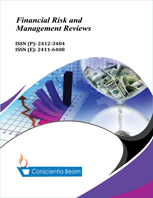External Debt and Nigeria's Sovereignty
DOI:
https://doi.org/10.18488/journal.89.2019.51.25.39Abstract
This paper examines external debt and Nigeria’s sovereignty. The methodology of this research is based on content and qualitative analyses. The paper argues that external debt influences the sovereignty of Nigeria in different ways. These include the imposition of adjustment programmes ie privatization, devaluation, deregulation and trade liberalization. These programmes have subjected Nigeria to political control by the international financial institutions and affected Nigeria’s sovereignty vis-à-vis the place of the country in the comity of nations. The paper also argues that the imposition of adjustment programmes on the country provides opportunity to the IMF and the World Bank to monitor the implementation of the programmes that infringe on the sovereign right of the country. Furthermore, the paper believes that the imposition of high debt burden on the country infringes on the sovereign power of Nigeria to perform its human rights obligations towards its citizens. Moreover, this research argues that the introduction of debt rescheduling i.e. debt-equity swaps by the creditor countries give them the opportunity to determine how resources from the debt-equity swaps should be invested in the country. Therefore, the paper concludes that for Nigeria to utilize its sovereign power within the comity of nations it ought to have deimplemented adjustment programmes that are agents of imperialist control.

